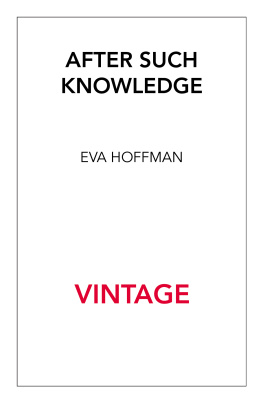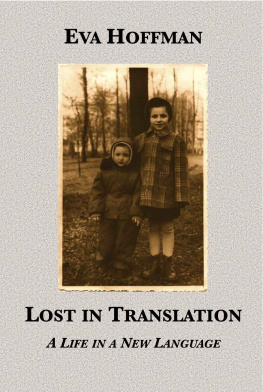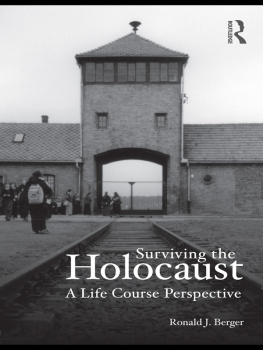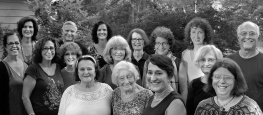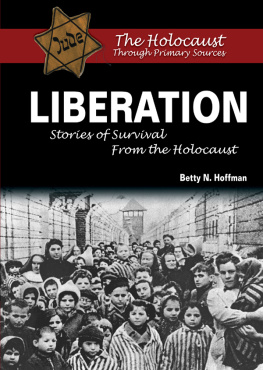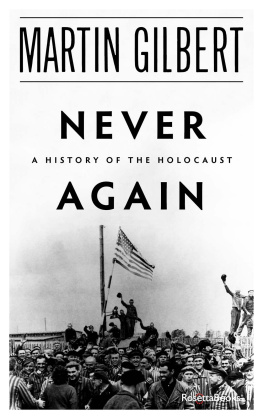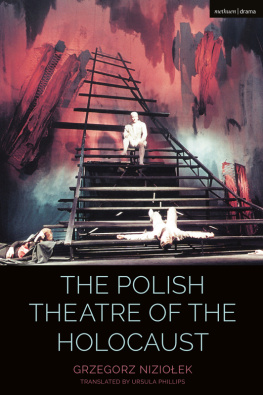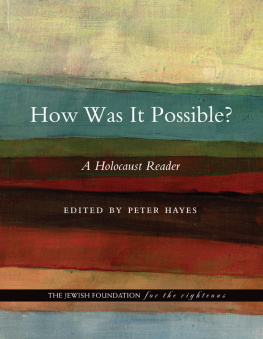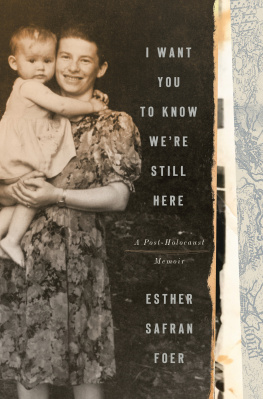CONTENTS
ABOUT THE BOOK
As the Holocaust recedes from us in time, the guardianship of its legacy is being passed on from its survivors and witnesses to the generation after. How should we, in turn, convey its knowledge to others? What are the effects of a traumatic past on its inheritors, and the second generations responsibilities to its received memories?
Eva Hoffman probes these questions through personal reflections and through broader explorations of the historical, psychological and moral implications of the second-generation experience. She examines the subterranean processes through which private memories of suffering are transmitted, and the more wilful stratagems of collective memory. As she guides us through the poignant juncture at which living memory must be relinquished, she asks what insights can be carried from the past, and urges the need to transform potent family stories into a fully-informed understanding of a forbidding history.
ABOUT THE AUTHOR
Eva Hoffman was born in Cracow, Poland, and emigrated to America at the age of thirteen. The recipient of the Guggenheim Fellowship, the Whiting Award and an award from the American Academy and Institute of Arts and Letters, she currently lives in London. She is the author of Lost in Translation, Exit into History, Shtetl, and the novel The Secret.
ALSO BY EVA HOFFMAN
Non-Fiction
Lost in Translation
Exit into History
Shtetl
Fiction
The Secret
To my sister Alina, fellow inheritor of the legacy.
AND
Rafael (Felek) Scharf,
who knew how to transmit knowledge.
Eva Hoffman
AFTER SUCH
KNOWLEDGE
A Meditation on the
Aftermath of the
Holocaust

INTRODUCTION
And so, after all, the Holocaust.
Sixty years after the Holocaust took place, our reckoning with this defining event is far from over. Indeed, as this immense catastrophe recedes from us in time, our preoccupation with it seems only to increase. We are ever more intent to penetrate its dark lessons, to excavate every datum concerning its origins and execution, to try to rectify, however belatedly, some of its injustices.
At the same time, even as our fascination intensifies, we inevitably contemplate the Shoah from an ever-growing distancetemporal, geographical, culturalwith all the risks of simplification implicit in such remoteness. It has become routine to speak of the memory of the Holocaust and to give this putative faculty privileged status; but most of us, of course, do not have memories of the Shoah, nor, often, sufficient means for apprehending that event. How should we, then, from our distance, apprehend it? What meanings does the Holocaust hold for us todayand how are we going to pass on those meanings to subsequent generations?
I had grown up with a consciousness of the Shoah from the beginning. My parents had emerged from its crucible shortly before my birth. They had survived, in what was then the Polish part of the Ukraine, with the help of Polish and Ukrainian neighbors; but their entire families perished. Those were the inescapable factsthe inescapable knowledgeI had come into. But the knowledge had not always been equally active, nor did I always want to make the inheritance defining.
Indeed, it was not until I started writing about it in my first book, Lost in Translation, that I began discerning, amidst other threads, the Holocaust strand of my history. I had carried this part of my psychic past within me all my life; but it was only now, as I began pondering it from a longer distance and through the clarifying process of writing, that what had been an inchoate, obscure knowledge appeared to me as a powerful theme and influence in my life. Until then, it had not occurred to me that I was in effect a receptacle of a historical legacy, or that its burden had a significance and weight that needed to be acknowledged. Now, personal memory appeared to me clearly linked to larger history, and the heavy dimensions of this inheritance started becoming fully apparent.
Several developments led me to feel that I wanted to return to and foreground further this aspect of my own and my generational history. Some of the recent manifestations, and proliferations, of the memory cult have left me uneasy. At the same time, my parents died; the survivors as a group were reaching the end of their natural life span. I had listened to their stories throughout my life. Now, I felt more and more palpably that the legacy of the Shoah was being passed on to us, its symbolic descendants and next of kin. We were the closest to its memories; we had touched upon its horror and its human scars. If I did not want the memory of the Holocaust to be flattened out through distance or ignorance, if I wanted to preserve some of the pulsing complexity I had felt in survivors own perceptions, then it was up to me.
At the same time, it seemed to me that if I wanted to understand the significance of the Holocaust inheritance for those who come after, then I needed to reflect on my own and my peers link to that legacy, to excavate our generational story from under its weight and shadowto retrieve it from that secondariness which many of us have felt in relation to a formidable and forbidding past. In a sense, I needed to address frontally what I had thought about obliquely: the profound effects of a traumatic history, and its paradoxical richness; the kinds of knowledge which the Shoah has bequeathed to us, and the knowledge we might derive from it.
Within the larger history of postwar responses to the Holocaust, the direct descendants of survivorsthe so-called second generationform a particular subset and story. The existence of the second generation was probably announced in 1979 with the publication of Helen Epsteins seminal book Children of the Holocaust: Conversations with Sons and Daughters of Survivors. All of Epsteins interlocutors had been deeply affected by their parents experiences, whether these were spoken about or not. But for many of the books subjects, the interviews were the first time they had looked at the post-Holocaust aspect of their stories as something distinct and significant, or had articulated the impact of their parents histories on the parents themselves, the family dynamics, or their own inner and outer lives.
Since then, however, the second generation has crystallized into a recognized entity, and a self-conscious identity. Children of survivors by now comprise a defined, if hybrid, collectivity which holds international meetings and conferences and which has given rise to a growing body of writing, ranging from highly personal to highly theoretical.
This book is emphatically not a sociological study, nor a work of specialist scholarship. I have not tried to encompass all the aspects of the second-generation phenomenon, nor have I conducted systematic interviews. Nevertheless, it seemed to me that the second generations story is a strong case study in the deep and long-lasting impact of atrocity; and that children of survivors very personal transactions with the past are a strong clue to the problems we must grapple with if we would grasp the meanings and consequences of historical horror. In their mediated but immediate relation to the Holocaust, children of survivors have had to live out and struggle with some of the defining issues that follow from atrocity: the internal impact of gratuitous violence and the transmission of traumatic experience across generations; the emotional intricacies of dealing with victims of persecution and the moral quandaries implicit in dialogues with perpetrators; the difficulties of witnessing the pain of others and of thinking about tragic pasts; and the relationship of private memory to a broader understanding of history.

